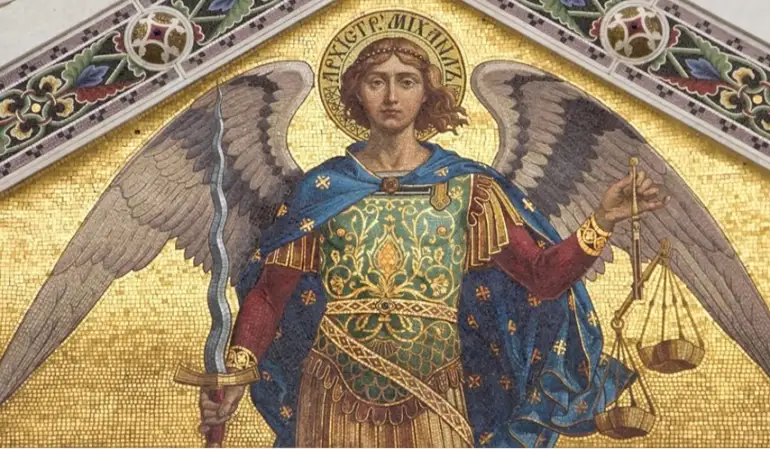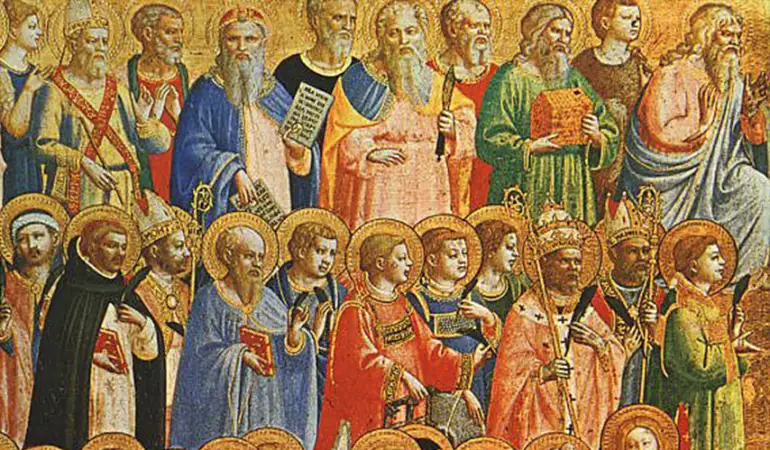Understanding Saints and Patron Saints: A Clear Distinction
Demystifying Saints: The Role of the Patron Saint
January 26, 2025 14:11
For those looking into Catholic practices from the outside, two terms often arise that can seem interchangeable or confusingly similar: "saint" and "patron saint." While closely related, they represent distinct roles and levels of recognition within Catholic tradition. Understanding the nuance between them offers a clearer glimpse into the Church's reverence for holy individuals and its belief in their ongoing spiritual role.
So, if someone is a saint, what makes them a patron saint? Let's break down each concept.
What is a "Saint"?
In the Catholic understanding, a saint is an individual who lived a life of exceptional holiness and virtue on Earth, and who is now believed to be in Heaven, enjoying eternal communion with God. The Church, through a rigorous process called canonization (which, as we've explored, involves meticulous investigation and confirmed miracles), formally recognizes these individuals.
For Catholics, saints serve two primary purposes:
- Models of Holiness: Their lives provide inspiring examples of how to live out the Christian faith and demonstrate that holiness is attainable, even amidst earthly struggles.
- Intercessors: Believed to be in God's presence, saints are asked to intercede, or pray on behalf of, believers on Earth. Catholics believe that a saint's prayers are powerful because of their closeness to God.
Every person formally canonized by the Church is considered a "saint."
What is a "Patron Saint"?
A patron saint is a saint who has been designated as a special advocate, protector, or guide for a particular group, place, profession, activity, or even an individual. This designation usually stems from some connection the saint had to that specific area during their lifetime, or from miracles attributed to their intercession related to that area after their death.
The role of a patron saint is to offer focused, specific intercessory prayers to God for those they patronize. For instance, a city might have a patron saint who is believed to specially protect it, or a group of healthcare workers might look to a specific saint who was a physician for spiritual guidance and prayers related to their profession.
The Key Distinction: All Patron Saints Are Saints, But Not All Saints Are Patron Saints
Here's the crucial point:
- Every patron saint is, by definition, a saint first. They must have undergone the full canonization process and be formally recognized as being in Heaven.
- However, not every saint is a patron saint. Many saints are recognized for their holy lives and are revered as models and intercessors, but they may not have a specific, formally designated patronage.
Think of it this way: "Saint" is the broad category of officially recognized holy people in Heaven. "Patron Saint" is a specialized role within that category. It's like comparing a "teacher" to a "science teacher." All science teachers are teachers, but not all teachers are science teachers.
How Does a Saint Become a Patron?
The designation of a patron saint often arises from:
- Historical Associations: St. Patrick, for instance, became the patron saint of Ireland due to his evangelization of the country.
- Events in Their Lives: St. Francis of Assisi, known for his love of creation, became the patron of animals and the environment.
- Miracles or Attributes: St. Anthony of Padua, often invoked for finding lost items, is the patron saint of lost things. zzzz Formal Declaration: The Church, through papal decrees or local episcopal decisions, can officially designate a patron saint for a diocese, country, or specific group.
- Popular Devotion: Sometimes, a saint becomes a de facto patron through popular piety and common prayer before any formal designation.
Examples of Patron Saints:
The variety of patron saints is vast, reflecting the many facets of human life:
- St. Michael the Archangel: Patron of police officers, soldiers, and paramedics.
- St. Luke: Patron of physicians and artists.
- St. Cecilia: Patron of musicians.
- St. Christopher: Patron of travelers.
- St. Florian: Patron of firefighters.
- St. Joseph: Patron of workers and families.
- St. Anne: Patron of grandmothers.
Individuals also often choose a personal patron saint, perhaps one whose life story resonates with them, or whose feast day falls on their birthday.
Spiritual Significance of Patronage
For Catholics, the concept of a patron saint adds another layer of personal connection and spiritual support. It provides:
- Focused Intercession: A specific spiritual advocate to whom one can direct prayers related to particular struggles or needs.
- Relatability: Saints often faced challenges similar to our own, offering inspiration and a sense that they understand and can effectively intercede.
- Communal Identity: Patron saints foster a sense of spiritual identity and unity for groups, professions, or geographical regions.
In essence, while all saints are revered for their holy lives and their ability to intercede, patron saints offer a more direct and specialized form of spiritual advocacy, weaving the lives of those in Heaven even more intimately into the earthly journey of faith.





